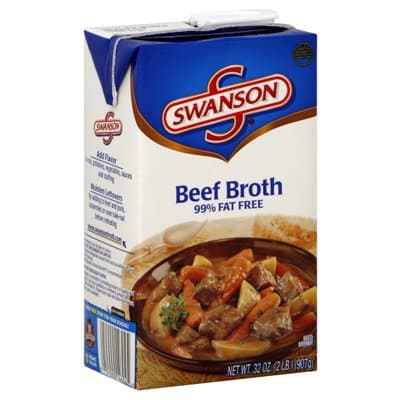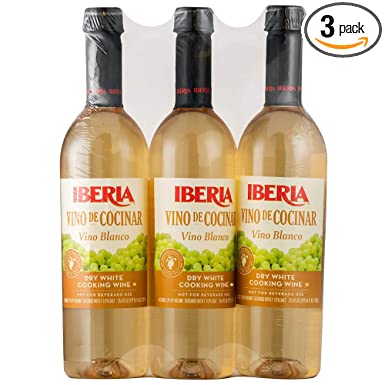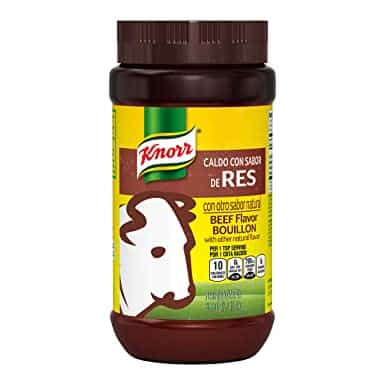Updated on December 25th, 2023
Bouillon cubes are designed primarily to give dishes a lot of flavor and umami without cooking a batch of bone broth or stock from scratch. Due to the convenience they afford users, bouillon cubes have become a standard element in several traditional cuisines throughout the years.
Beef bouillon cubes offer the promise of great taste, as well as easy and convenient use, and this is perhaps why it is much loved and popular across many native cuisines. What is to be done, however, if you happen to run out of beef bouillon cubes while you’re in the middle of rustling up a tasty meal?
Consider the substitute options we have suggested for you as replacements for beef bouillon cubes. These substitutes may work in different dishes from beef bouillon cubes but should ultimately produce great-tasting meals with incredible flavors. It is also important to use them in the right amounts to ensure the best possible results.
What are Beef Bouillon Cubes?
A bouillon cube, stock cube, broth cube, or stockpot is a small cube of dried broth or stock about 13 mm (12 in) broad. It is usually created from dried veggies, meat stock, a small amount of fat, MSG, salt, and seasonings and molded into a small cube. Bouillon can be bought in granular, powdered, liquid, or paste form, and there are vegetarian and vegan options available.
The ingredients differ across manufacturers and are subject to change. However, salt, hydrogenated oil, monosodium glutamate, taste enhancers, and flavors are more common ingredients.
Beef bouillon cubes were created in place of beef broth or beef stock to add a great amount of flavor to dishes without the stress of making beef broth. Due to this fact, beef bouillon cubes afford their users a lot of convenience in the cooking process, besides the fantastic flavors they inspire.
Beef Nutrition Facts

Uses of Beef Bouillon Cubes in Recipes
Bone broth and stock, which take a long time and a lot of room to manufacture, inspired the creation of bouillon cubes. Meat and bones are often used in making bone broth. On the other hand, beef bouillon cubes are made from dehydrated stock or meat and can make a meaty, tasty broth in the same amount of time as it takes to boil water. They’re also quite easy to preserve and don’t require refrigeration compared to the broth.
Beef bouillon cubes add umami and spice to various dishes, including curry, soup, stew, rice, and sauces. They can also produce beef broth by dissolving them in water. Some people grate the cubes to make a rich powder sprinkled on salt or mixed with popcorn.
Some of the recipes that typically include beef bouillon cubes are listed below:
- Tomato vegetable aspic
- Egg noodles
- Bouillon vegetable soup
- Homemade Au Jus
- Rashida Korean beef stock
- Beef and noodles
- Beef stroganoff with egg noodles
- Buttered noodles
- Homemade brown gravy
- Vegetable beef soup
- Beef flavored rice
- Pot roast
- Bean soup with ham hocks
- Cream of mushroom soup
- Beef ribs barbecue
- Meaty spaghetti sauce
Substitutes for Beef Bouillon Cubes
When your recipe calls for some beef bouillon cubes and you happen not to have any at hand or in your spice rack, the next best thing is to turn to available substitutes. There are many alternatives to beef bouillon cubes, and some of them produce very similar flavor profiles to beef bouillon cubes. As such, they can suffice in a pinch in the absence of beef bouillon cubes.
Our suggested substitute options include the following:
Beef Broth
The first thing that should come to mind when replacing beef bouillon cubes in recipes is beef broth. Since beef bouillon cubes are essentially made from beef broth, there is nothing to stop you from achieving the same results by using beef broth instead.
The beef broth, which has a similar flavor and texture to beef bouillon cubes, may be used in various recipes and can even be made at home. For example, one cup of chicken broth can be used in place of one beef bouillon cube in any meal. Practically any recipe that calls for beef bouillon cubes can be made with beef broth instead, and flawless results would be achieved nonetheless.
Dry Wine
Dry white wine is another excellent substitute for beef bouillon cubes. The alcohol content of dry white wine adds a wonderful touch to meals, and it would thus make an excellent replacement for beef bouillon cubes.
Dry white wine may be incorporated in almost any recipe to arrive at delicious and satisfying results. Cooking with dry white wine also allows a slightly different taste with a fantastic finish.
Beef Bouillon Powder
Beef bouillon powder is a powdery flavoring agent that can be used in place of beef bouillon cubes that can be used in a variety of recipes. With this option, the flavors that would be imparted into the recipe in question would be identical to those normally inspired by the use of beef bouillon cubes.
Beef bouillon powder can be used in many different dishes. For example, one teaspoon can usually be substituted for every beef bouillon cube required by the recipe. It is, however, important to pay attention to the texture of the powder, so it does not affect the entire meal.
Frequently Asked Questions (FAQs)
Can you use chicken bouillon instead of beef bouillon?
Many people substitute chicken broth for beef broth in recipes, albeit the flavors will be slightly different. You may also use chicken bouillon cubes dissolved in hot water to give your dish a savory, meaty flavor.
Can I use chicken broth instead of beef broth in chili?
Chili cooks slowly, so you’ll need a lot of liquid to keep the meat soft and prevent it from drying out. Chicken, beef, vegetable stock, or beer can be used, as the liquid in question should also contribute flavor to the chili.
What is the difference between bouillon cubes and granules?
Bouillon cubes and bouillon granules are both dried chicken stock that has been condensed. Granules are, however, crushed, while cubes have been compressed into squares.
Conclusion
Beef bouillon cubes provide more flavor, aroma, and a lovely finishing touch to foods. These cubes are generally a great addition to any cuisine, whether it’s a hot noodle soup, veggie side dishes, or anything else. But if there are no beef bouillon cubes available, some substitutes can work in place of them in recipes.
These substitutes should nonetheless be used in the right methods to ensure that the results in recipes are desirable enough.



